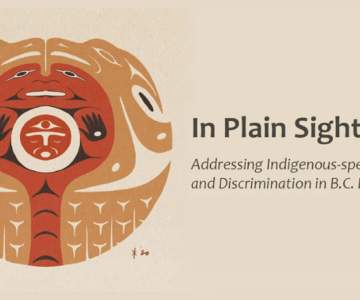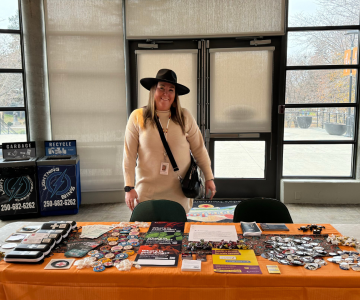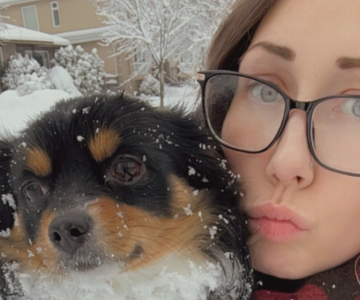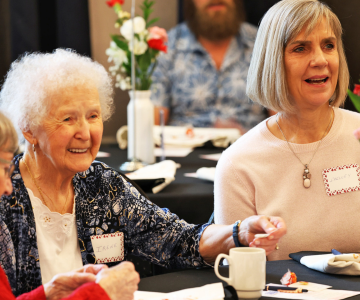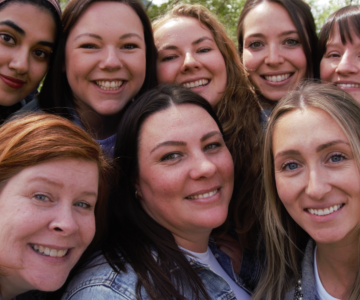Breadcrumb
Explore Stories
Health & Wellness
This week marks the fourth anniversary of the "In Plain Sight: Addressing Indigenous-specific Racism and Discrimination in B.C. Health Care" (In Plain Sight/IPS) report.
In response to the In Plain Sight report, Interior Health (IH) has worked to address the recommendations with the support of dedicated staff members and community partners.
Health & Wellness
Regular testing for sexually transmitted infections (STIs) like syphilis, chlamydia and HIV are an important part of your health-care routine, a healthy sex life and good relationships.
Many communicable diseases and infections transmitted by blood show no symptoms and can be passed on. In fact, one in seven people who are HIV-positive don’t know it.
When we think of HIV, it’s hard not to remember the 1980s AIDS epidemic when HIV was a “death sentence.” Today, HIV is highly treatable. While it is a chronic infection with no cure, medications help people live a healthy and full life.
Still, some people report that testing for HIV is easier said than done. Besides not being able to easily access services, people can feel embarrassed and self-conscious when seeking HIV and STI testing. Or they are nervous and scared about finding out their test results. Indigenous clients are vulnerable due to stigma and barriers to accessing culturally safe care.
We’re out to change that. We sat down with Natalie Howe, a Population Health Program Specialist for Street and Health Outreach, and Kristina Stewart, the team’s regional Indigenous Patient Navigator. We asked them how the Outreach team supports our most vulnerable clients and how they’re working to make HIV testing barrier-free for all in the Interior Health region.
Community & Culture
Name: Kailey Stuart (she/her/hers)Job Title: Computer Technical Support 2, Virtual CareYears of Service: 7Worksite: Royal Inland Hospital (but works remotely)Community: KamloopsAncestral Territory: Secwépemc NationFavourite Quote / Advice to live by: “Be curious, not judgmental.”
Described by her colleagues as approachable, people oriented, and a good communicator, Kailey Stuart, computer technical support 2, Virtual Care, at Interior Health (IH), aims to make her colleagues’ lives a little easier through her work in technology.
A natural problem-solver with a strong creative streak, Kailey was diagnosed with attention deficit hyperactivity disorder (ADHD) as an adult. But she doesn’t let that hinder her work or personal projects and, despite its challenges, feels neurodivergence has enriched her life in many ways.
“I like to think of ADHD as my superpower,” she says. “Don’t get me wrong, there are a LOT of downsides, but those can be managed. Having ADHD makes me think differently than others, which means I'm often able to find creative solutions to problems. Hyperfocus is also pretty cool when it’s used for good; I can sit down and focus on a task for hours and hours without breaking focus.”
Community & Culture
Content warning: This story deals with suicide, abuse and substance use.
Jenn is sitting in her Kelowna apartment, her dark hair tied up in a ponytail. Her blue-green eyes shine behind large black glasses, and tattoos peek out from her white t-shirt. She’s bright and animated, and open about her journey in addiction.
Jenn recently joined Interior Health’s peer advisory group, and offered to share her story. “The more open and vulnerable I am, the less power addiction has over me,” says Jenn. “I made mistakes and I’m okay with that now. I’ve just always wanted to help people.”
Community & Culture
Name: Thandazani Mhlanga (he/him/his)Job Title: Spiritual Health PractitionerYears of Service: 6 months with IH, 13 years in spiritual health Worksite: Cariboo Memorial Hospital (CMH)Community: Williams LakeAncestral Territory: Swaziland / Zimbabwe; currently resides on Secwépemc and Tŝilhqot’in Nations territoryFavourite Quote / Advice to live by: “One belief, more than any other, is responsible for the slaughter of individuals on the alters of the great historical ideas. It is the belief that those who do not share my faith – or my race or my ideology – do not share my humanity.” Alfonso Borello, The Book of Dignity
Thandazani was born in Zimbabwe but his cultural heritage and origins are rooted in Swaziland. The family moved to Canada 17 years ago for a fresh start, with Thandazani first settling in the Interior eight years ago, and returning to the area about two-and-a-half years ago with his wife and children.
Health & Wellness
Every 30 minutes, one older adult in B.C. is hospitalized for fall-related injuries. Each day, one older adult dies from a fall in B.C.
Falls are the leading cause of injury-related deaths and hospitalizations for adults aged 65 years and older. Falls can lead to fractures (broken hip or broken ankle), head injuries, loss of mobility and independence, long-term disability and reduced quality of life.
Falls are not an inevitable part of aging! While the highest percentage of falls are caused by slipping, tripping and stumbling, the good news is that many falls are preventable.
Jenna Young is an improvement consultant, Falls and Injury Prevention, with Interior Health (IH). "Falls prevention is a team effort,” she says. “Families, loved ones and your health-care team can work together to identify and address fall risks before they lead to harm.
Community & Culture
We’re honoured to share that Interior Health (IH) has been named one of Canada's Top 100 Employers, an annual competition that recognizes companies and organizations that lead their industries in offering exceptional workplaces for their employees.
Discover why IH was selected a Top 100 Employer
This award recognizes the innovation, dedication, compassion and commitment of our teams across our region who provide exceptional service to the communities we serve. It also demonstrates our collective efforts to creating a workplace where people want to come to work.
Community & Culture
Nurse Practitioners (NPs) play a pivotal role as health-care providers to improve timely access to care in the short term and on an ongoing basis. They see people at their most vulnerable and provide continuous care, support, and compassion no matter how hard it may get, often working tirelessly for long hours to help those in need.
Let’s meet some of the incredible NPs who are providing patient-focused, compassionate care that improves the health and well-being of patients in the communities they serve.
Community & Culture
A new nurse’s journey can be filled with challenges. But with the right support, it can be an incredibly rewarding adventure.
New to Nursing, a podcast produced by the New Graduate Nurse Transition Program, offers engaging content for new nurses seeking quick, resourceful and supportive information. You can stream the podcast on Apple and Spotify.
Whether you’re on your morning commute, taking a coffee break, or winding down after a long shift, the New to Nursing podcast is the perfect companion. So grab your headphones, subscribe and get ready to dive into a new way of learning!
-
Load More
Showing 180 of 833
Sign up for email updates
Receive news, alerts, public service announcements and articles right to your inbox.


